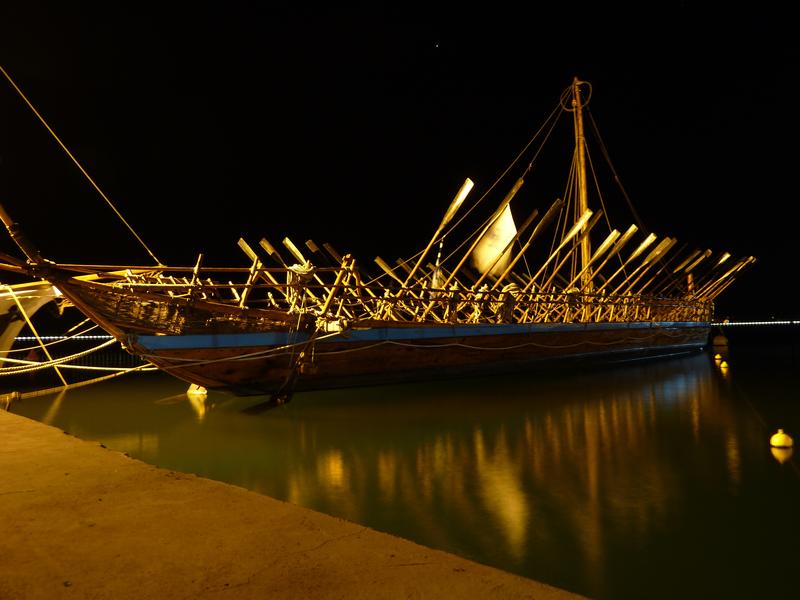Mythology
Magnesia, land of myths, starting point of Argo, and homeland of the Trojan War heroes.
Let’s travel to the main city of Magnesia Prefecture, the land named after the tribe Magnetes, descendants of the god of Winds, Aeolus, and valiant seafarers of the time. Magnetes got their name from Magnes, grandson of Deucalion, king of Thessaly, only survivor of Zeus’ flood and “father” of all Greeks. According to mythology, Magnesia is related to the kingdom of Pelias, to the king of Pherae, Admetus, and the latter’s wife, Alcestis, who sacrificed her life to save her husband and became a symbol of marital fidelity.

The scenery changes and we move up to Magnesia’s mountain, to the beloved, verdant and enchanting Pelion, also known as the Centaurs Mountain, that wins any visitor over all year round. The Centaurs were mythological creatures, human from the waist up, bottom half horse. Savage, lustful and ferocious, they lived in caves and hunted wild animals. They are widely known mainly because of the Centautomachy that was often depicted in the decorations of ancient Greek temples. The Centauromachy was the destruction of the Centaurs, who, being drunk, attempted to abduct and rape all the women including the bride, Hippodameia, during her wedding with the king of the Lapiths, Pirithous. Ancient Greeks depicted the Centauromachy frequently and not randomly at all, as their destruction symbolized the prevalence of the human civilization over the primitive and animal instincts.
Chiron, one of the Centaurs, is part of the most famous and everyone’s favorite mythological story of Magnesia, the Argonauts. Wise and peaceable master Chiron, son of Cronus and nymph Philyra, was a nature, arts, herbs, medicine, music, astrology and divination savvy. He lived in a cave in Pelion; he was the instructor of many heroes, amongst whom the god of medicine Asclepius, the main character of Iliad, Achilles, and Jason. Aeson, the latter's father, left him to Chiron for protection and education, chased away by his brother and usurper of his throne, Pelias. Adult Jason later wanted to return to Iolcus, face his uncle and right the wrong. So, he did go back wearing only one sandal, having lost the other one crossing the surging river Anavros in Iolcus. Pelias got fretted when he laid his eyes upon him because the oracle was that he should avoid a one-sandal man who would seize the throne from him. In order to avoid him and retain power, he promised to give him the throne on the condition that Jason would bring him the Golden Fleece from Colchis. So, the most renowned and brave heroes of Greek mythology gathered in Iolcus, and with Jason as leader and ship Argo as their means sailed to their grandiose quest to the rich city of the Black Sea.

Magnesia, of course, is part of the also famous and everyone’s favorite story of the wedding of Peleus, son of Aegina Island’s king Aeacus, king of the Myrmidones, and father of Achilles mothered by Nereid Thetis. At Peleus’ wedding, Eris the goddess of strife and discord showed up uninvited and in her anger she tossed a golden apple, the infamous Golden Apple of Discord, with the inscription te kalliste, “To the fairest”, sowing discord to the attending goddesses about who would get to acquire it. Paris, son of king Priam, was the one Zeus chose to judge who would be the one to obtain the apple, opting for between Hera, Athena and Aphrodite. To convince him, each one individually to name them, they made offerings as bargaining chips. Hera promised that she would turn him into the strongest amongst all men, Athena the wisest and most capable in battle, and Aphrodite that she would give him as bride the most beautiful Greek woman, that is to say Helen. The young man picked Aphrodite’s gift and gave the apple to her.
Lastly, it is worth mentioning the relationship of Magnesia with Eumelos, son of Admetus, with other leaders of various cities of Magnesia who took part in the Trojan War, and with Philoctetes, the only man who dared light the pyre for Heracles to be burned. The demigod, as a thank you, gave him his bow and his poisoned arrows, thanks to which he killed many men in Troy during the Trojan War, amongst whom Paris. So, visit Magnesia and maybe your trip there will be the springboard for your next long or short, actual or spiritual journeys.
